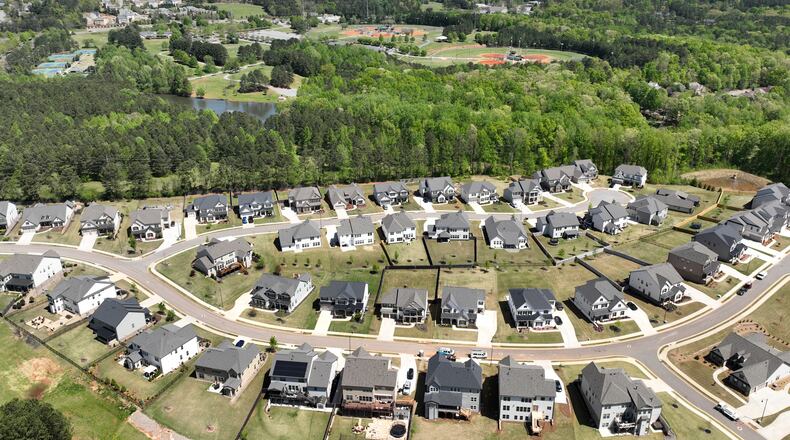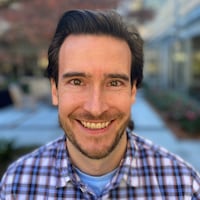The future of Cobb County — how it’s governed, how it’s developed and who can afford to live where — is at stake on the May 24 ballot.
But fewer than 1 in 5 county residents will get a say.
At the urging of Republican state lawmakers, voters in the proposed boundaries of Lost Mountain, East Cobb and Vinings are being asked whether to carve up much of Cobb’s remaining unincorporated land into three new cities — each of which would be wealthier, whiter and more politically conservative than the county as a whole.
And scholars say that, if approved, their creation could have wide-ranging consequences for Cobb’s future, with implications for public services, taxes and development, along with racial and economic inequality.
“The one (function of city government) that is truly among the most powerful is the power to shape land use,” said Michael Leo Owens, a political science professor at Emory University who studies urban politics. “And we know that historically, shaping land use has had racial consequences.”
Moreover, in a metropolitan area like Atlanta, where policies in one place can affect housing costs, traffic and employment across the entire region, experts say the ripple effects won’t be limited to the proposed city limits — or even the Cobb County line.
Supporters see the cityhood movements as an exercise in self-governance. By forming a city with locally elected leaders, proponents say they’ll be able to protect their suburban lifestyle from what they see as over-development and unwelcome growth.
“How can you keep Cobb the way it is? With cityhood,” said Scott Sweeney, a leader of the East Cobb cityhood movement. “You’re going to have an opportunity for local control and local zoning.”
Opponents question whether an extra layer of government is needed. The areas seeking to incorporate have little, if any, of the high density development that cityhood backers say is encroaching on their communities. And county planning documents don’t envision dramatic changes.
In the rush to incorporate, opponents also worry that important issues, like what cityhood could cost taxpayers, are being overlooked. The consequences of some unanswered questions — like a lawsuit challenging the “city lite”-style charters that limit the proposed cities’ services — may not be fully understood until its too late.
“A cityhood is a big step. It should be undertaken thoughtfully, thoroughly, transparently,” said Bob Lax, a leader of the East Cobb Alliance, which opposes cityhood. “...I think local control sounds good, but what does local control really cost me?”
Meanwhile, in the sprint to a May election date, misinformation and personal attacks have proliferated, mirroring the emotionally charged and partisan fights over Buckhead cityhood in Atlanta. Against that backdrop, the attempts of county officials to educate residents on what cityhood would mean for them have been met with cease and desist letters from cityhood supporters accusing them of inappropriately taking sides on a political issue.
But at town hall after town hall, voters have begged county leaders to explain what these movements will mean for public services and local taxation, only to leave frustrated when the answer is often “we don’t know,” or “we can’t say.”
After the referendums were moved up to May from November during this year’s legislative session, county officials say they didn’t have enough time to thoroughly study the effect the new cities would have on the county government.
“I just want voters to be well-informed when they go cast their ballot,” Ross Cavitt, Cobb’s communications director, told the AJC. “And I’m not sure we’re there yet.”
Politics drives push for new cities
The last time a new city was formed in Cobb County, it was envisioned as a luxury neighborhood for white suburbanites, centered around a golf course.
Incorporated in 1961, the city of Chattahoochee Plantation had a population of just 200 people. But within just a few years, Georgia state lawmakers redrew the new city’s boundaries for political aims of their own.
In 1968, lawmakers expanded the city’s limits to run the length of Cobb’s border with Fulton County. A 10-foot wide, 30-mile-long city, with one purpose: To prevent Atlanta from annexing its northwest suburbs, at a time when Black political power was growing in the capital of the Old South.
Over 50 years later, fears of Atlanta’s boundaries crossing the Chattahoochee River have largely subsided. But in its place, another image has taken hold in the minds of many cityhood supporters: That of the newly elected Democratic majority on the Cobb Board of Commissioners bringing urbanization and apartment living to their suburban and rural communities.
To those who have studied cityhood politics in metro Atlanta, there’s no doubt that political polarization is playing an outsized role in what’s happening in Cobb — a longtime conservative stronghold that has seen dramatic political and demographic shifts in the last decade.
Aside from Chattahoochee Plantation, which officially dissolved in 1995, it has been over a century since Cobb County residents formed a new city. In the first local election since Cobb flipped to Democratic control in 2020, Republicans are now pushing to create three new cities at once.
“Part of it is that Republicans in certain areas in Cobb County feel threatened, and they have money,” said David Shock, a political science professor at Kennesaw State University. “If you have some money, you can make these political changes.”
Race, class loom large
Partisanship — and the restoration of conservative political power in an increasingly blue Cobb — is only one part of the story.
An AJC analysis of U.S. Census data found that the proposed cities contain nine of the 10 Census tracts with the lowest percentage of Black residents in Cobb County. Of the 32 Census tracts that are more than 71% white, 22 are in the proposed cities.
As a whole, Cobb County is 51% white, 29% Black and 20% other races, but the proposed cities are all at least 68% white.
“You draw in who you would like to be your neighbors, and draw out (others),” said Ben Williams, president of the Cobb County Chapter of the Southern Christian Leadership Conference. “Race is a factor in that. ... Class is also a factor.”
In legislative hearings, cityhood supporters denied considering race in how the city’s boundaries were drawn. In Vinings, for instance, the lines largely follow the village’s historic boundaries. But Census data show those historic boundaries also reflect stark residential segregation along lines of race and socioeconomic class.
“It wouldn’t be such a problem if our starting point wasn’t generally racial segregation,” said Owens, the Emory professor. “That’s the context. Anything you do with regards to land in metro Atlanta often has race and class implications.”
And even though race may not be a political motivator in the same way it was in the days of Chattahoochee Plantation, experts say it still matters when it comes to drawing the lines of a city. Political boundaries determine who gets to vote, who pays city taxes and who benefits from public services.
And, when zoning powers are used to maintain low density neighborhoods with high property values, they determine who can afford to live in a city at all.
Brian Highsmith, a senior researcher at Yale Law School, calls the phenomenon “municipal hoarding.”
“When you think about intergenerational wealth and who has had access to economic opportunity … that’s a central reason why wealth is so segregated and concentrated in white communities,” Highsmith said. “What (cityhood) allows those communities to do is to to incorporate as their own separate entities and then effectively to hoard that wealth.”
Cupid targeted by campaigns
In Cobb, public services may not be affected as dramatically as in other cityhood movements. Residents will still pay county taxes and receive most county services. Of the three, only East Cobb plans to provide police and fire departments.
But there will still be a cost. Shock suspects taxes could go up on everyone as Cobb leaders try to replace an estimated $41 million in net revenue lost annually to the new cities.
When the cityhood movements were first under public consideration earlier this year, supporters insisted in legislative hearings that they were happy with Cobb County and the services it provides. They said they simply wanted better representation from their government.
Today, Cobb’s 766,000 residents are represented by a county-wide chair and four district commissioners; each district has 191,000 residents. A city of Lost Mountain would have six council members to represent a total of 75,000 residents; Vinings, the smallest cityhood effort, would have four council members in a city of 7,000.
Over time, however, the cityhood campaigns have shifted to attacks on Cobb’s government — much of it focused on one person: Democrat Lisa Cupid, the county’s first Black chairwoman.
In one recent campaign email, Lost Mountain cityhood leaders said Cupid wanted to “make sure West Cobb is flooded with apartments and laundromats,” an unfounded claim that warps comments she has made previously in support of affordable housing.
In an interview with the AJC, Cupid declined to discuss whether she thought the attacks had anything to do with her race. But she said it was “classist and offensive” that cityhood leaders depicted her as someone who was incapable of representing wealthier constituents who enjoy suburban and rural living.
“Their communication seems to present this idea as if I’m not intelligent, nor capable of making intelligent decisions on behalf of our county,” said Cupid, who has a mechanical engineering degree from Georgia Tech, a law degree and a master’s in public administration.
Previously the district commissioner for South Cobb, Cupid said that she and her husband now live in a more affluent neighborhood in Smyrna. “We live in a community where homes are selling for between $600,000 to over $1 million. I live on a half-acre lot. I don’t feel like I need to say these things. … But I feel like I have to go out of my way to qualify myself to show that I have the capacity to understand what they perceive as the ‘average citizen’ may care about.
“It’s very frustrating,” she added, “because I try to be someone who’s mindful of everyone regardless of where they come from.”
About the Author
Keep Reading
The Latest
Featured




